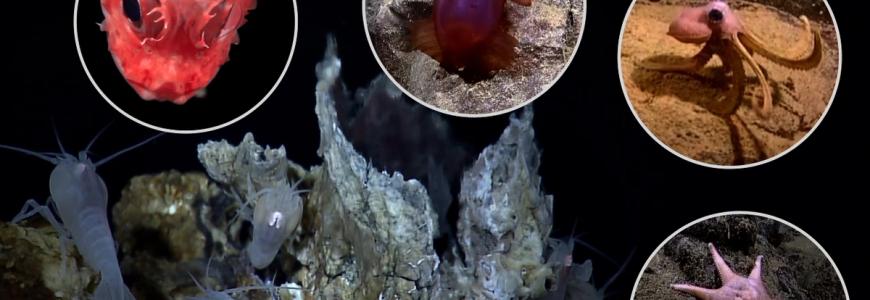Infinitely Small to Infinitely Great: The Search for Microbial Life on Other Worlds
The Science for the Public 2018 Science Lectures at MIT, April 10, 2018
MIT Earth, Atmospheric & Planetary Sciences bldg
Peter Girguis, Ph.D., Professor of Organismic & Evolutionary Biology, Harvard University
Modern oceanographers explore the ocean through a combination of human-operated and autonomous instruments. Our understanding of the ocean and its denizens is advancing at a remarkable rate, and yet we still possess a rudimentary knowledge of the ocean. We largely view the ocean as the sum of its parts, and have a limited understanding of the relationships and synergies that exist within the ocean system. This tendency is, to a large extent, a result of how we conduct our science. Expedition-based science, in which scientists or autonomous vehicles set out on a mission for a prescribed period of time, tends to result in data with great spatial resolution (as samples are often taken while underway) but very limited temporal resolution (as ships cannot stay in one place for more than several weeks).
The advent of seafloor and water-column "observatories" provided an unprecedented opportunity to conduct long-term studies with incredible temporal resolution, but limited spatial resolution. Therein lies the challenge of studying processes in the ocean, our world's most massive habitat. While we may never be able to “keep our thumb on the pulse” of every measurable factor in the ocean, we as a community are developing new technologies that permit us to better examine our oceans and to sustain a nearly continuous scientific presence in the deep sea.
Here we present some of the latest developments -as well as the lessons- from exploring our own inner space. Here we will present our data from recent efforts aimed at examining the relationships among abiotic and biological processes in our ocean. These technologies and methods are also helping us unlock the mysteries of the cosmos, in particular that enduring question of whether life exists on other celestial bodies. We are fostering a rich and extensive collaboration among ocean and space scientists that is critical if we are to advance our understanding of other ocean worlds, such as Enceladus and Europa, beyond the scope of current missions and technologies. In essence, it may be our increasing ability to peer into the ocean depths that will allow us to better peer into the cosmos.

